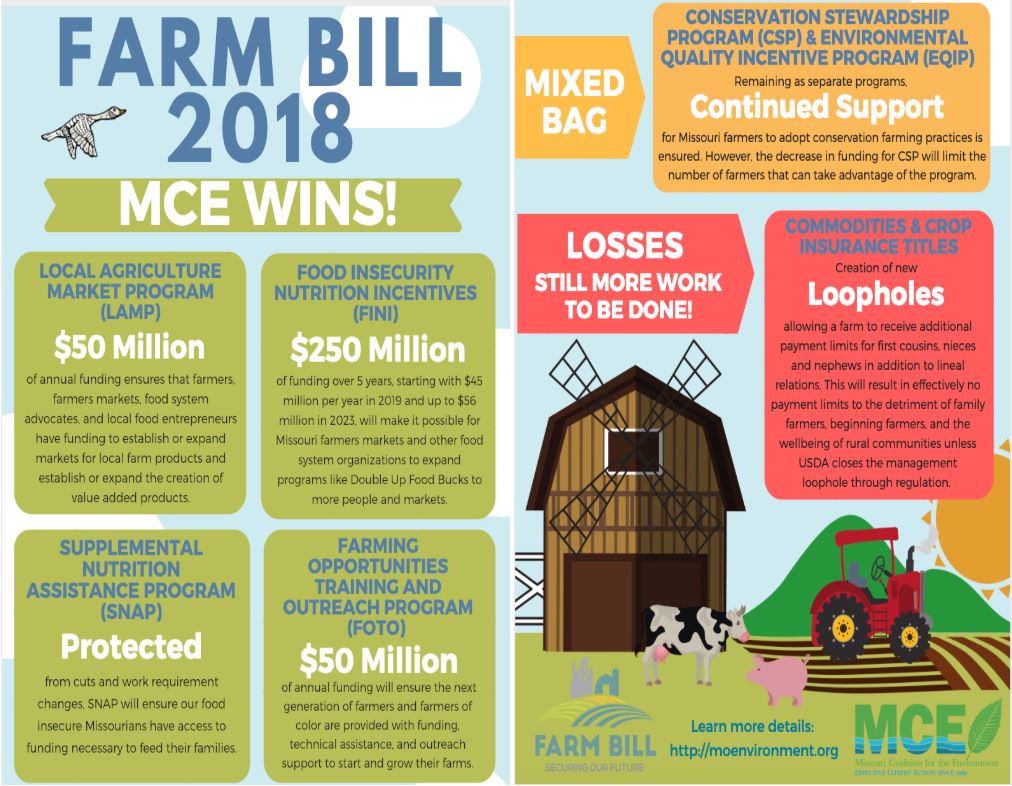Every five years, Congress rewrites the “Farm Bill,” a key piece of legislation that impacts our food, our soil and water quality, our health, and our wallets. The “Farm Bill” is a federal omnibus bill that covers a variety of food and farm-related concerns, and provides funding and support for various federal programs. Some of these programs directly affect agriculture, such as crop insurance, crop subsidies, and incentive programs for soil conservation practices. Other programs are indirectly related to agriculture, such as the Supplemental Nutrition Assistance Program or SNAP (formerly the Food Stamp Program) and various programs related to forestry, rural development, biofuel production, and food safety. The Farm Bill also influences the type of crops farmers produce, whether farmers choose to implement conservation practices on their land, the amount of financial support available to low income families to purchase food, and the type and price of food found on our grocer’s shelves.
The most recent Farm Bill, the “Agriculture Improvement Act of 2018,” is composed of the following twelve Titles, listed in order:












With every new Farm Bill, Missouri Coalition for the Environment advocates for a fair, safe, environmentally-responsible Farm Bill since it influences many aspects of our lives. From our stomachs to our taxes, it defines agricultural, environmental, and governmental practices. MCE works to create a better system that offers food security, fair markets, environmental stability, and finally, a stronger taxpayer voice. Visit MCE’s 2023 Farm Bill Action page to see what actions you can take to help improve the Farm Bill for the environment, our health, our farmers, and our communities.
2018 Farm Bill Summary

